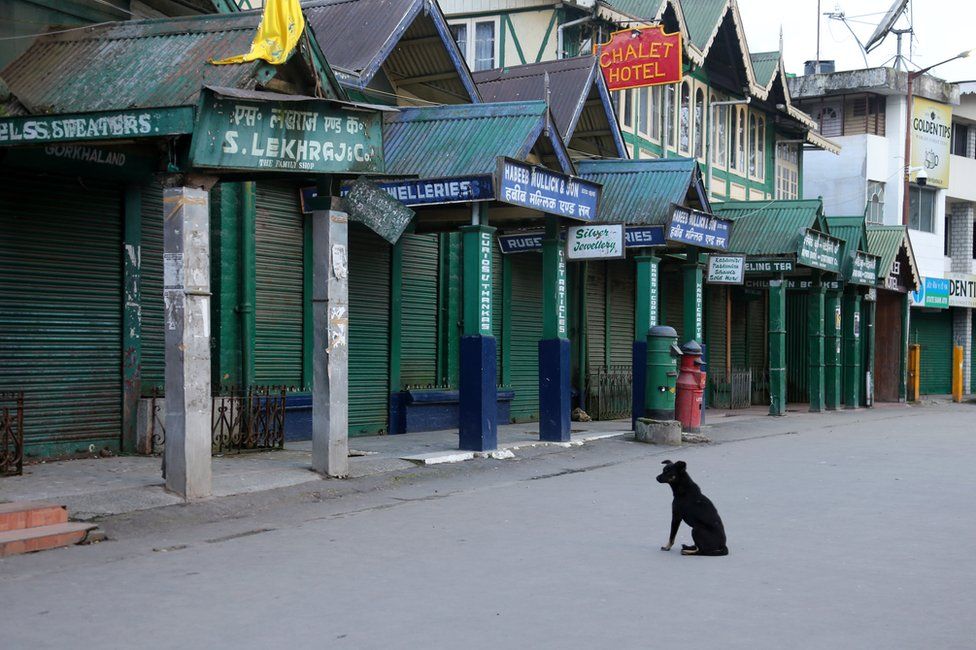 SAIBAL DAS
SAIBAL DAS
An indefinite strike has paralysed life in India's tea-producing region of Darjeeling. A local party is demanding a separate state for the area's majority Nepali-speaking Gorkha community.
The protests have followed a recent decision by the West Bengal government to introduce Bengali as a compulsory subject in schools across the state, including in Darjeeling.
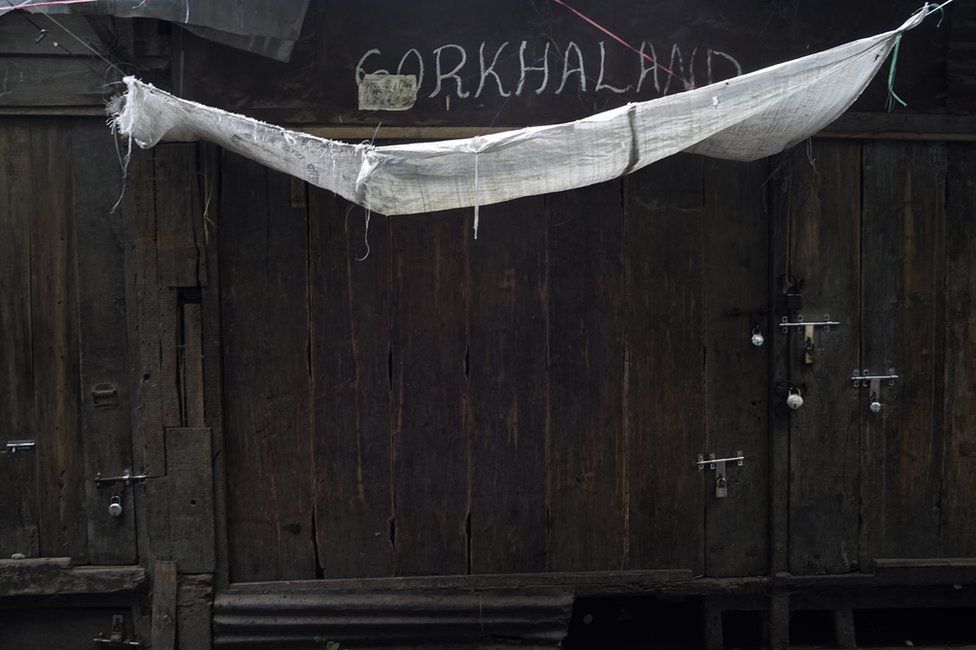 SAIBAL DAS
SAIBAL DAS
The Gorkha Janmukti Morcha or GJM (Gorkha People's Liberation Front), which is spearheading the protest, has threatened "a fight-to-the-finish" for Gorkhaland, the separate state they want carved out of West Bengal's northern hill region.
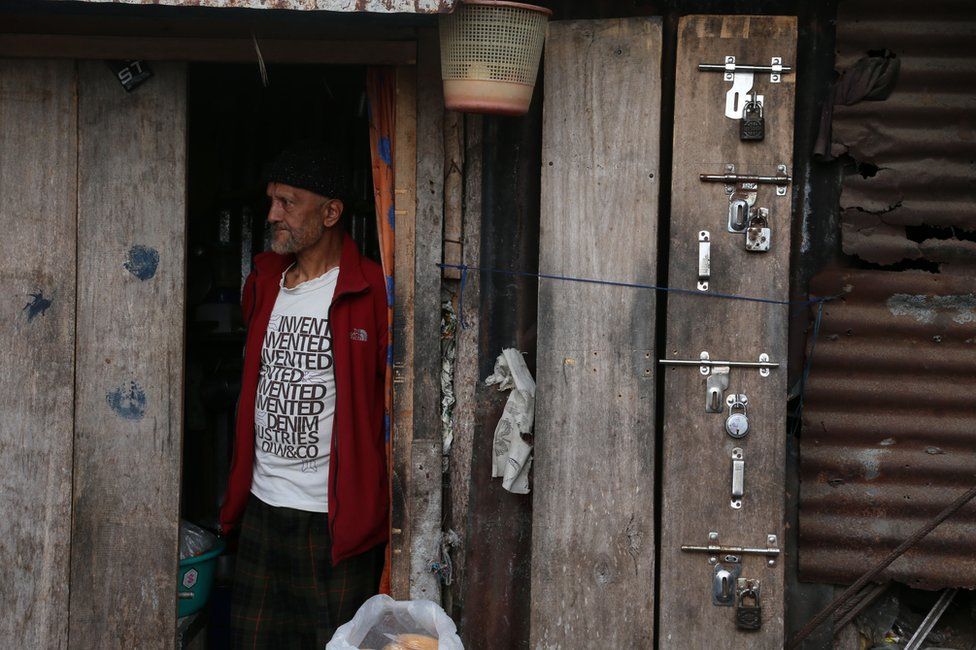 SAIBAL DAS
SAIBAL DAS
The strike began last month but was relaxed to allow shops to open during Ramadan, when Muslims fast during daylight.
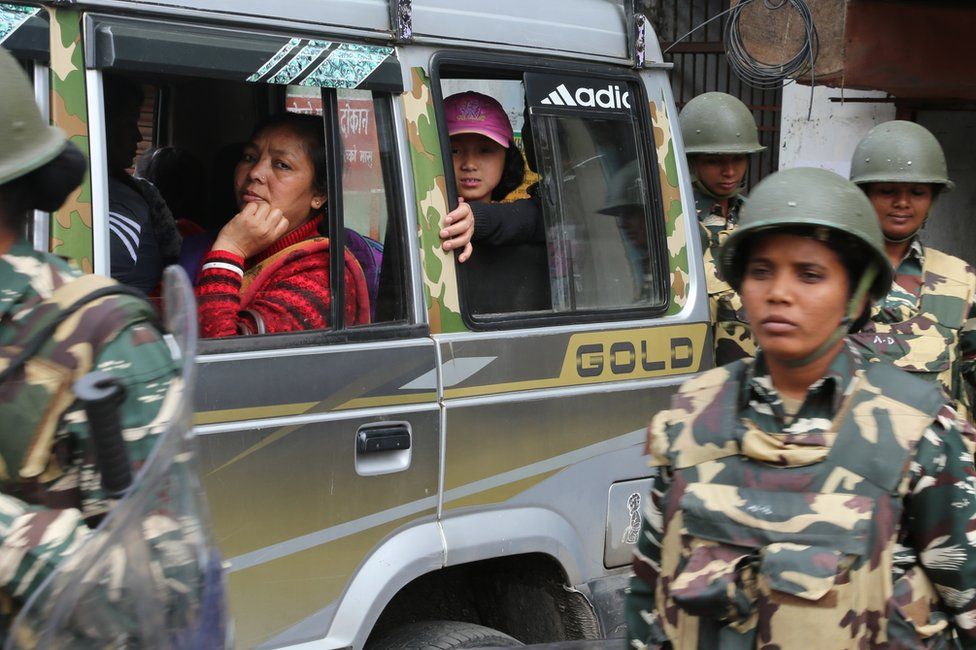 SAIBAL DAS
SAIBAL DAS
The strike has disrupted public transport, causing inconvenience to thousands of local residents.
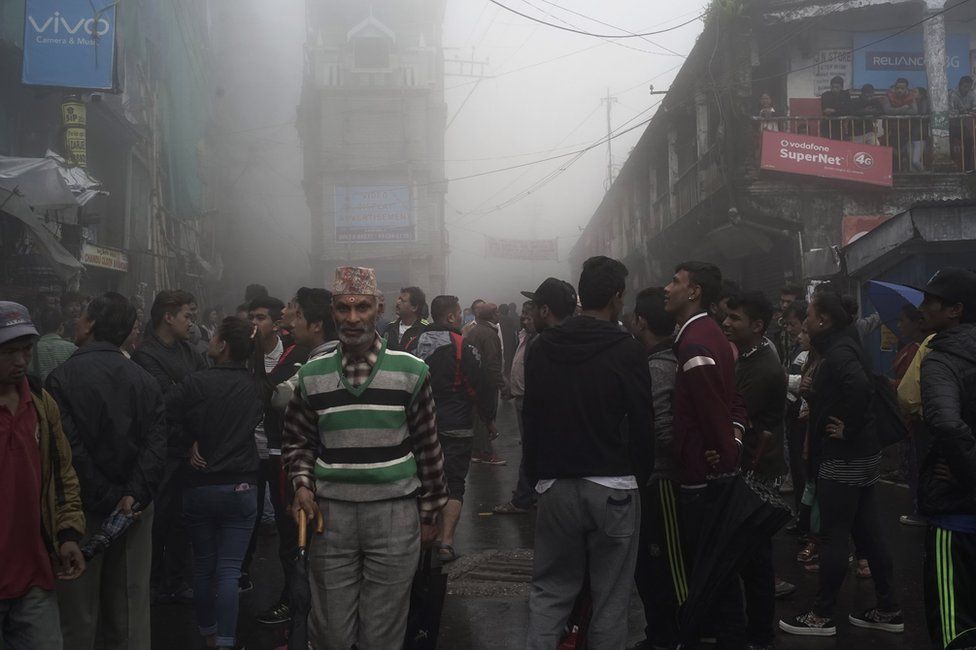 SAIBAL DAS
SAIBAL DAS
Darjeeling has been hit at the peak of the summer tourist season. Tens of thousands of visitors who were left stranded in the hills when the violence began in June have left.
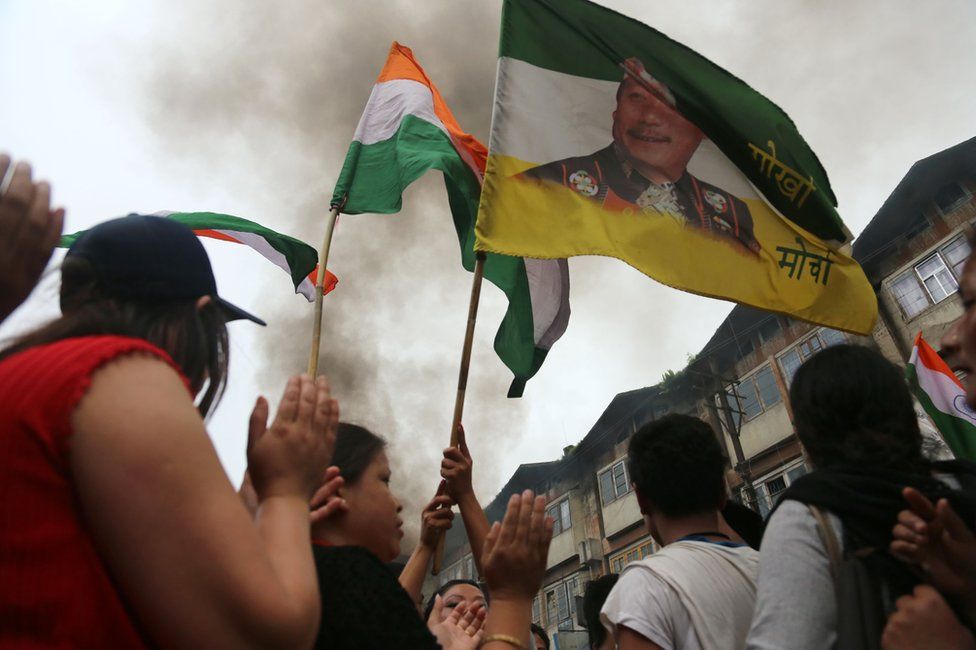 SAIBAL DAS
SAIBAL DAS
The leader of the movement, Bimal Gurung, has been in hiding ever since he announced the strike. His supporters are accused of attacking policemen and intimidating shopkeepers to keep their shutters down.
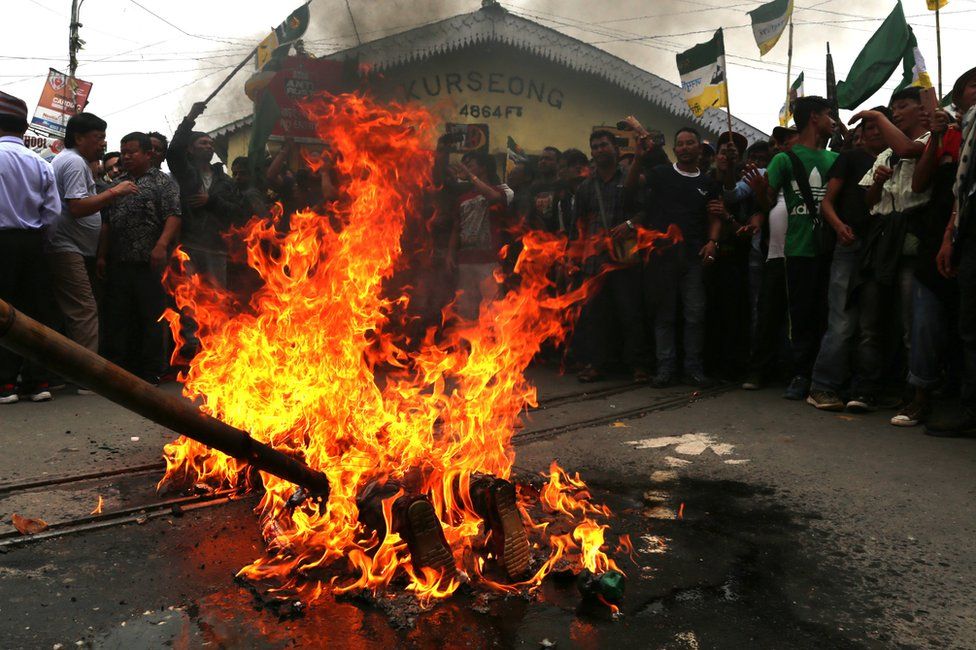 SAIBAL DAS
SAIBAL DAS
The West Bengal police have raided his many offices and hideouts across the hills and arrested his supporters for burning down government offices and vehicles. Protesters have retaliated by burning effigies of Chief Minister Mamata Banerjee, who leads the Trinamool Congress party which governs the state.
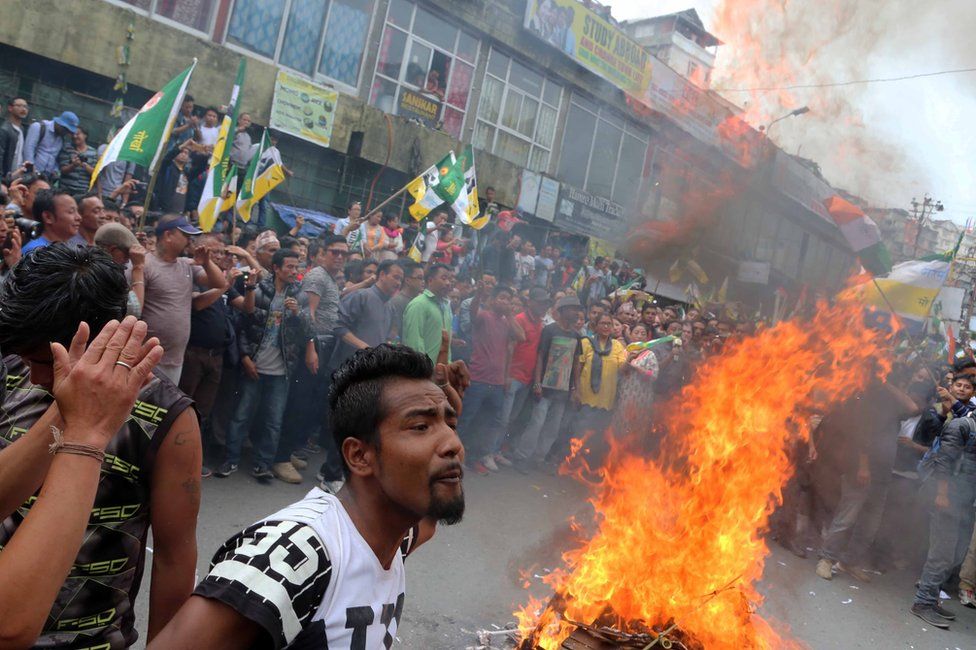 SAIBAL DAS
SAIBAL DAS
In June, the army was called out to help police tackle the protesters. At least five people were killed and more than 100 others, including 30 policemen, injured in the violence.
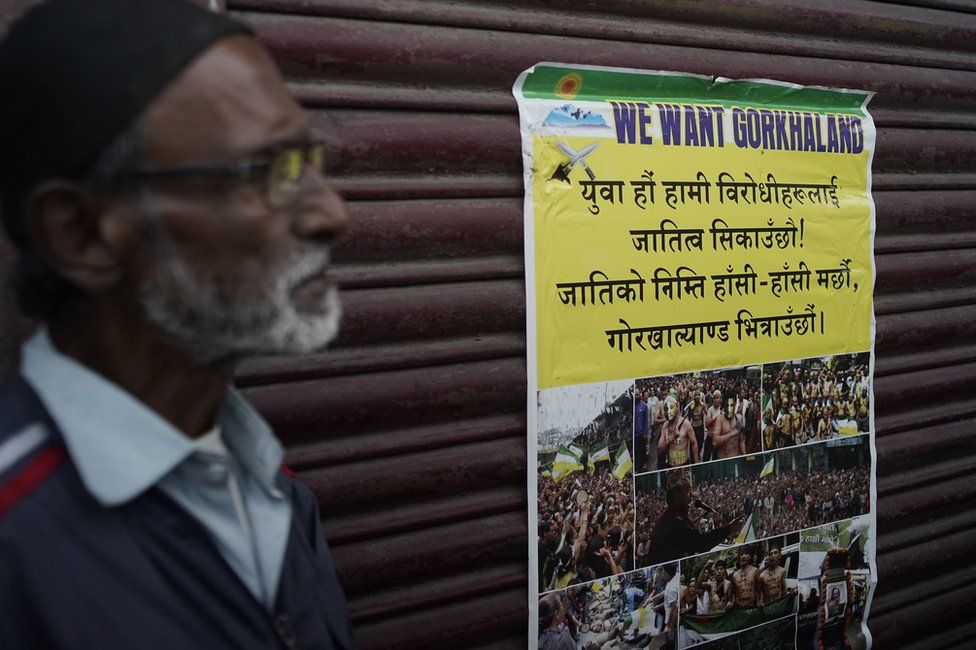 SAIBAL DAS
SAIBAL DAS
Darjeeling saw violent protests for a separate state in the 1980s in which more than 1,200 people died.
That ended when the Gorkhas settled for an autonomous council that promised a degree of self rule for the hill region.
But the leader of the 1980s protests, former soldier Subhas Ghishing, has now been replaced by his former lieutenant, Mr Gurung, who is more hardline.
Long-time Darjeeling residents fear an uncertain future if the hostilities in India's tea bowl continue.
BBC News
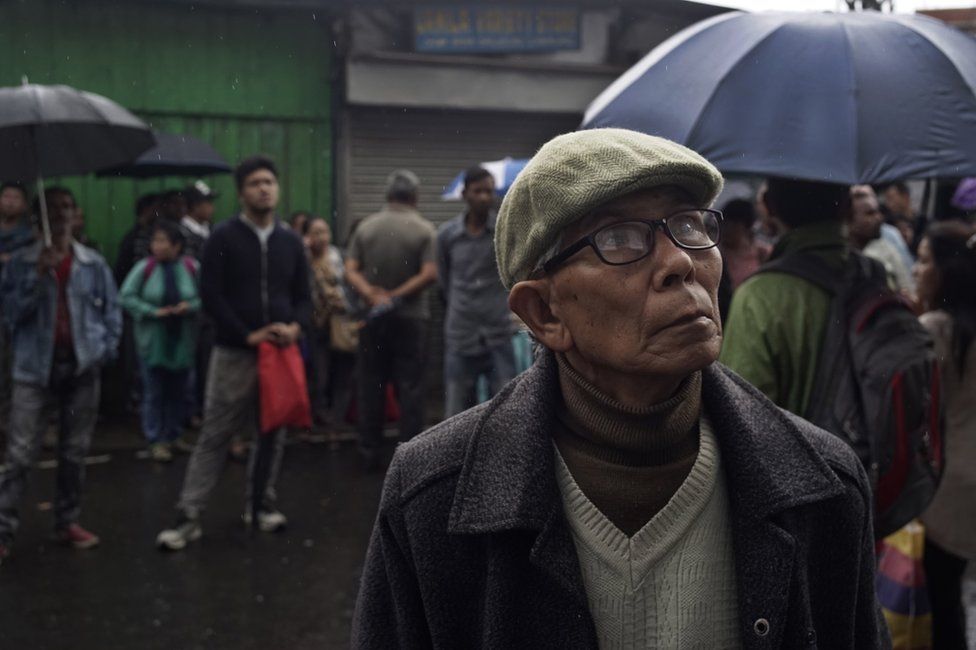
No comments:
Post a Comment